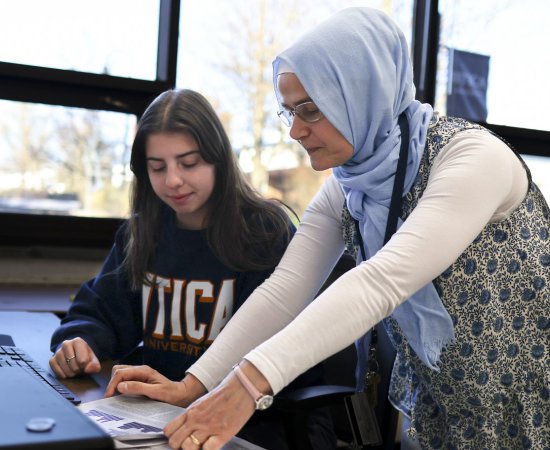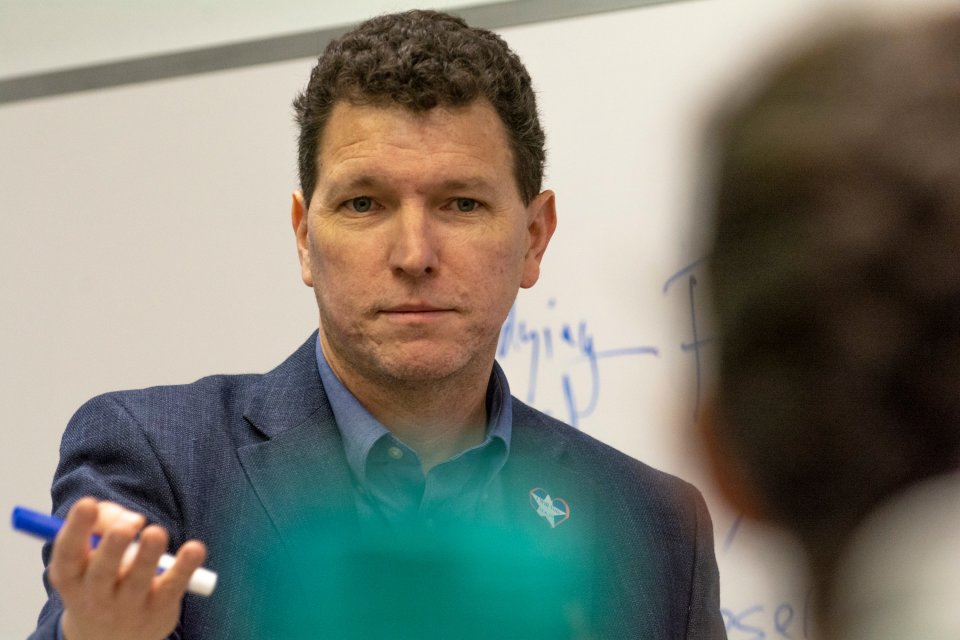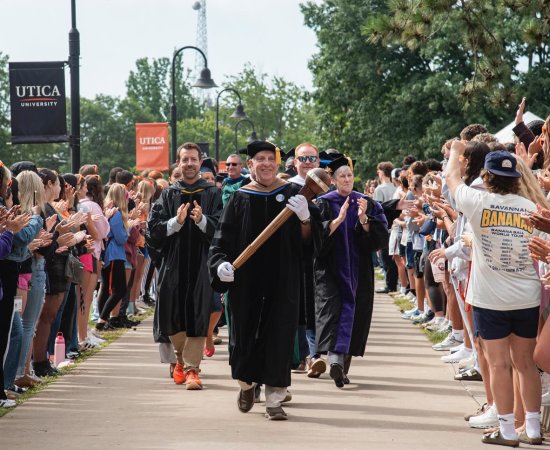
Learning for Life: Utica's General Education model gets re-imagined

"...one difference is that students will have more choices of courses, such as upper level courses with more focused topics of study."
Generations of Utica alumni recall the University’s Core curriculum – the 34-55 credits worth of required courses designed to broaden a student’s educational horizons and create well-rounded learners and members of society. But last fall, the Core model was re-imagined to better serve students by allowing them to explore new areas, discover unexpected interests, and develop skills that will serve them for life.
We talked to the Director of the General Education Program and Professor of English Gary Leising to learn more.
Utica magazine: Describe Utica's new General Education model. How does this differ from the Core curriculum alumni remember?
Professor Gary Leising: The new model has two components: foundations and pathways. In foundations, students gain some of the important knowledge that will serve them well in their college education and beyond: communication skills, quantitative thinking, scientific literacy, critical thinking, and information literacy. In pathways students will explore disciplinary perspectives on art, culture, literature, society, history, and engaged citizenship. Even though these disciplines and skills may sound similar to Core's, one difference is that students will have more choices of courses, such as upper level courses with more focused topics of study. So, a student need not be confined to an introductory course, but could dig deeper into a subject of interest with a course on Women in Literature, or a Theatre course on August Wilson's plays, or a history course on the Balkans.
UM: What are the goals of the new model?
GL: One goal in mind during the model's design was for it to be fewer credits than Core. Students will be able to take courses in their major from the start rather than taking a full load of Core in their first semester, so they'll see the interaction between Gen Ed and their major right away. They'll also have more credits available to take electives or to add a minor or second major.
Another goal was to make the Gen Ed program more coherent. This happens in the pathways. A student could choose a general pathway, where, with an advisor's help, they design their own curriculum from a long list of approved courses, thus drawing their own connections across their curriculum. Or the student can take one of our themed pathway minors, courses connected by a general theme.
UM: What are the top benefits to students?
GL: Student choice is a benefit, and faculty are designing new classes, pathways, and minors to excite students about the program. But another important benefit is the requirement that students take two courses that address diversity, equity, and inclusion. DEI issues are at the forefront of so many areas of life today--education, yes, but also in politics, in workplaces, when we socialize, in economics. We've developed the meaning of DEI education further than the former diversity designation in Core, so we'll really give students the chance to learn about what it means to live in a diverse community, to think about ways to make those communities function more equitably, and to create and support more inclusive policies and practices. Those courses will be an important step in our students' lifelong learning, as well as beneficial for our campus community, I hope.
UM: What aspect of the new Gen Ed model are you most excited about?
GL: I'm most excited about the inclusion of upper level courses in the pathways. I'm excited that my 300-level course on writing poetry is one of those. I'm looking forward to getting to show students who might not have thought about this class as an option what a great experience trying something new and maybe outside of their expectations can be, and I'm not the only faculty member thinking this way. We want to share the subjects, practices, and disciplines that we're most passionate about, those that called us into this profession, to all the Utica students we can. It'll open up so many new worlds of knowledge and more possibilities for everyone.
More Stories


High spirits, community kick-off 2025 Utica University Convocation

Rainy skies met with showers of smiles at Utica University Move-In Day
I would like to see logins and resources for:
For a general list of frequently used logins, you can also visit our logins page.
